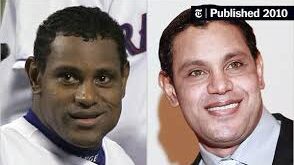How well do you know your pubes?


Reality: Actually, quite the opposite. Pubic hair acts as a breeding ground for bacteria. “There’s no question that being hair-free in that area is cleaner simply because of the fact that the hair does provide bacteria,” says Wendy Askew, M.D., an ob-gyn with the Institute for Women’s Health in San Antonio. While researchers haven’t studied germs in pubic hair specifically, studies have shown alarming amounts of bacteria in Duck Dynasty-style beards, says Askew.
Still, many women incorrectly assume pubic hair protects them from genital warts and STDs that result from skin-to-skin contact. “Pubic hair alone is not sufficient enough to protect against STDs,” says Sejal Shah, M.D., a New York City dermatologist and RealSelf contributor. In fact, it could help the virus thrive. A Chinese study concluded HPV present in a man’s pubic hair could lead to HPV-related issues in their female partners.

Reality: This one varies from woman to woman. Many think pubic hair leads to less friction between the sheets, making sexytime a bit smoother. (And pubic hair does help cushion and protect the area, says Shah.) But, some women prefer the more intense feels that happen when they’re hair-free, adds Askew. “In theory, you can get more direct stimulation without that buffer,” she says. “It depends on how much women prefer, and how much stimulation or pressure they require to achieve orgasm, [as to whether] the hair may or may not be a hindrance.” So you do you, girl!


Reality: Thankfully—for groomers and those who go au naturel—the hair stops growing when it reaches a certain point, says Askew. “It will stop and basically stay at a certain level, and then it will shed and new ones will grow,” she says. The length at which it halts varies from person to person, but Shah says it generally stops between .5 and two inches. Eventually, it might even become thinner. “We typically see it after women go through menopause and they have hormone deficiencies,” says Askew. “A majority of women experience not only losing the hair—maybe they’ll go completely bald—but the hair will become much more sparse, much finer, and much less densely populated.”

Reality: You may just need to adjust your approach. (This is the right way to shave your bikini line.) “If you shave aggressively real close to the skin and don’t use some kind of emollient shave cream, you are going to be more prone to breaking or nicking the skin,” says Askew. “Then, the bacteria that live down there naturally have access to get under the skin and cause bumps and infections.” If smoothness is your goal, try a shave cream, waxing or laser hair removal.
-Womenshealthmag
 Quelins – Relationship, Sex, Marriage and Health News around the world Quelins Blog is an online magazine about relationships, love, information about marriage, partnerships and issues patterning to all that.
Quelins – Relationship, Sex, Marriage and Health News around the world Quelins Blog is an online magazine about relationships, love, information about marriage, partnerships and issues patterning to all that.




